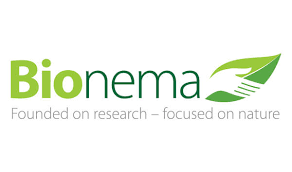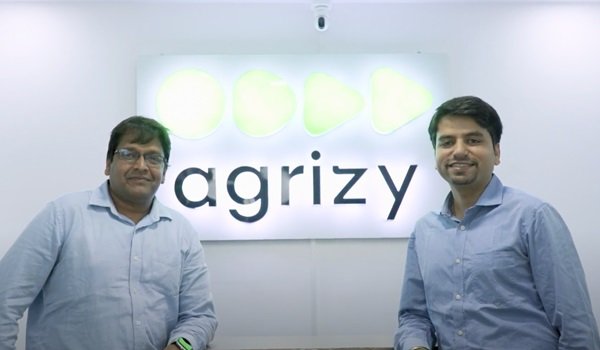The conference, themed ‘Transformation Towards Sustainable Agri-Food Systems,’ will gather around 1,000 delegates from universities and research institutions worldwide.
The 32nd International Conference of Agricultural Economists (ICAE), a prestigious triennial event in the field of agricultural economics, commenced successfully today with an inauguration by the Prime Minister of India, Narendra Modi, at the Bharat Ratna C. Subramaniam Auditorium, National Agricultural Science Centre (NASC) Complex in New Delhi, India. Continuing through August 7th, the conference, themed ‘Transformation Towards Sustainable Agri-Food Systems,’ will gather around 1,000 delegates from universities and research institutions worldwide to present developments in the field and deliberate on global food system challenges.
The inaugural session featured an inspiring address by the Prime Minister of India, Narendra Modi. Welcoming the gathering on behalf of one of the largest agricultural and allied sectors’ community, he stressed the importance of ancient Indian knowledge on agriculture, mentioning the ‘Krishi Parashar’, an almost 2000-year-old comprehensive treatise on agriculture with science and logic at its base and had in-depth knowledge on weather forecasting, rainwater harvesting, animal husbandry, storage among other topics. Recalling the past, when India’s food security was a matter of concern for the world, he remarked, “Today, India is a food surplus country; the largest producer of milk, pulses and spices, and the second largest producer of foodgrain, fruits, vegetables, cotton, sugar, tea and fish. India now provides solutions on global food and nutrition security and the country’s experience and knowledge are highly valuable for discussions on food systems transformation and will especially, benefit the Global South.”
Highlighting the government’s push for research and development into climate-resilient crops, the Prime Minister said, “Nearly 1900 new climate resilient varieties have been handed to the farmers in the last 10 years, including rice varieties which require 25 percent less water than traditional varieties.” Acknowledging the seriousness of the nutrition related challenge, he presented millets as a solution given “the superfood’s quality of using minimum water to deliver maximum production” and expressed India’s willingness to share this superfood basket with the world. He also touched upon various initiatives for farmers’ welfare and advancement and the move towards digitization of agriculture, concluding by highlighting the importance of global knowledge sharing for a sustainable future for all.
ICAE, organized by the International Association of Agricultural Economists (IAAE), is a key forum for agricultural economics since 1929. Hosting the conference in India highlights the country’s proactive role in addressing global agricultural and developmental challenges and showcases its advancements in research and policy. The event is jointly organized by the Indian Council of Agricultural Research – National Institute of Agricultural Economics and Policy Research (ICAR-NIAP), the International Food Policy Research Institute (IFPRI), the National Academy of Agricultural Sciences (NAAS), the Agricultural Economics Research Association (AERA – India), the Indian Society of Agricultural Economics (ISAE), and the Indira Gandhi Institute of Development Research (IGIDR).
The conference theme addresses the urgent need for sustainable agricultural practices considering global issues such as climate change, natural resource degradation, rising costs, geopolitical conflicts and shocks. Shivraj Singh Chouhan, Minister for Agriculture & Farmers Welfare, also graced the inaugural ceremony, emphasised the Indian government’s commitment to transforming the agricultural sector through innovative policies and sustainable practices. He remarked, “Our efforts are rooted in ensuring that we increase our food production in such a way that it safeguards human and soil health. We are facing so many challenges today, ranging from hunger and malnutrition to climate change and decreasing food production due to changes in temperature. In fact, the future of our generation itself is at stake. I am positive that the discussions that take place at this global platform in the coming days will strengthen food-related policies and their formulation in India and globally.”
Thanking the Prime Minister for his presence and support, Prof. Ramesh Chand, Member, NITI Aayog, noted that the conference is being held in India for the second time after 66 years and has generated much anticipation among the new generation of agricultural economists in the country. “This conference is intended to provide strong evidence to prepare a roadmap for the enhanced role of agriculture for development in this changing world”, he said.
Prof. Matin Qaim, President of IAAE, sharing his sentiments on the need for sustainable food systems said, “Agricultural economists have an important role to play in doing the relevant science, addressing urgent questions and coming up with recommendations for policies to steer our food systems to more sustainable pathways and that is what we will be discussing in the next few days.”
Renowned experts and thought leaders including Dr. Himanshu Pathak, Dr Thomas Hertel, former IAAE presidents Dr Johan Swinnen and Dr Joachim von Braun, and Dr Smita Sirohi, Organizing Secretary for the ICAE were present as part of the inaugural event.
The ICAE 2024 will feature a series of impactful sessions designed to address the most pressing issues in agricultural economics and sustainable development ranging from innovative farming practices, digital agriculture, improving value chains and markets, gender in food systems and climate-smart policies. Along with prominent plenaries and expert panels, the conference will feature presentations by young researchers in the field and workshops designed to foster in-depth discussions on critical themes. Additionally, attendees will also get to experience exhibitions by agribusinesses, attend cultural and social events such as mid-conference tours, cultural performances, and enjoy an offsite dinner, providing everyone with an immersive experience of India’s vibrant heritage.
Through its comprehensive program, ICAE 2024 aims to contribute to the larger vision of sustainable agricultural practices and innovations that can be a catalyst for transformation in the global agri-food systems. The discussions and collaborations fostered during the conference are expected to lead to impactful solutions and new research initiatives, ensuring resilience and sustainability in agriculture for future generations.
The conference, themed ‘Transformation Towards Sustainable Agri-Food














